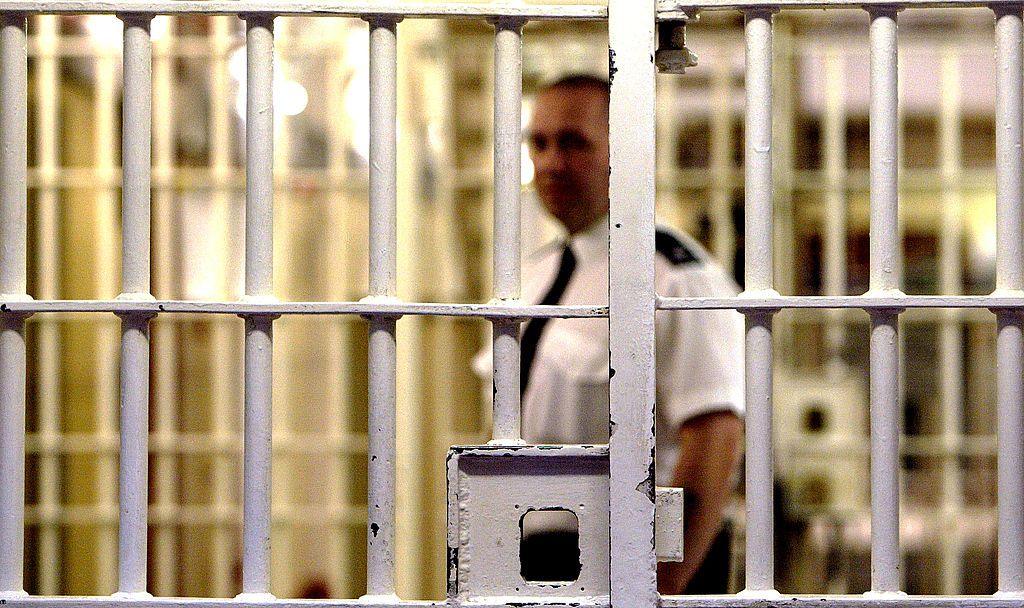Ministers accused of cover-up on prisoners freed early

- Published
Labour has accused the government of a "cover-up" over its scheme allowing some inmates to be freed early to ease overcrowding in jails.
Shadow justice secretary Shabana Mahmood said there were cases where violent criminals had been released without a proper assessment of the risk they posed.
It comes as a report found a "high risk" inmate who posed a danger to children had his release date brought forward, despite having a history of domestic abuse.
The government insisted no one convicted of a sexual, terrorist or serious violent offence would be eligible for early release.
The original scheme, introduced last October, allowed "low-level offenders" to be freed from prisons in England and Wales up to 18 days early under strict supervision.
This was increased to up to 60 days in March and will be further extended to up to 70 days from 23 May.
The prison population has ballooned in recent decades as a result of tougher sentences and court backlogs.
Prisoners could be released up to 70 days early
- Published8 May 2024
HMP Lewes battling rising violence, watchdog finds
- Published14 May 2024
Chief inspector of prisons Charlie Taylor has raised "serious concerns" about the policy.
A report on HMP Lewes published by the watchdog on Tuesday, external highlighted examples of high-risk inmates selected for early release.
One individual who had been freed early was recalled to custody before the watchdog's inspection of the prison had ended.
According to the findings, he had a "significant" drug problem and a record of self-harm as well as experiencing suicidal thoughts, but was freed despite "appeals for the decision to be reversed and staff having serious concerns for his and the public's safety".
He was homeless on release, the report said.
The inspection was carried out in February, shortly after the scheme was brought in.
Ms Mahmood said: "The public will rightly be worried to hear of cases where violent prisoners are being released without a proper assessment of the risk they pose to the public, and specifically children.
“It’s being left to prison inspectors to tell the public the truth because this government is refusing to level with them on the scale of the prisons and probation crisis."
Raising the issue in the Commons, Labour's shadow justice minister Kevin Brennan said victims "should have the right to know who this government is letting out of jail early".
In response, Justice Minister Laura Farris said: "Under our scheme, no sexual offender, no terrorist offender, nobody who has been convicted of serious violent crime or been convicted for four years or more will be eligible for release."
However, domestic abuse commissioner Nicole Jacobs said perpetrators of domestic abuse frequently received short prisons sentences and were likely to be among those released early.
She called for such criminals to be exempt from the scheme, adding: "Victims are being left to pay the price for prison overcrowding."
A Ministry of Justice spokesman said: "While we will always ensure there is enough capacity to keep dangerous offenders behind bars, this scheme allows us to ease short-term pressures on prisons by moving some lower-level offenders at the end of their custodial term on to licence.
"These offenders will continue to be supervised under strict conditions such as tagging and curfews, and the prison service can block the earlier release of any individual who poses a heightened risk."